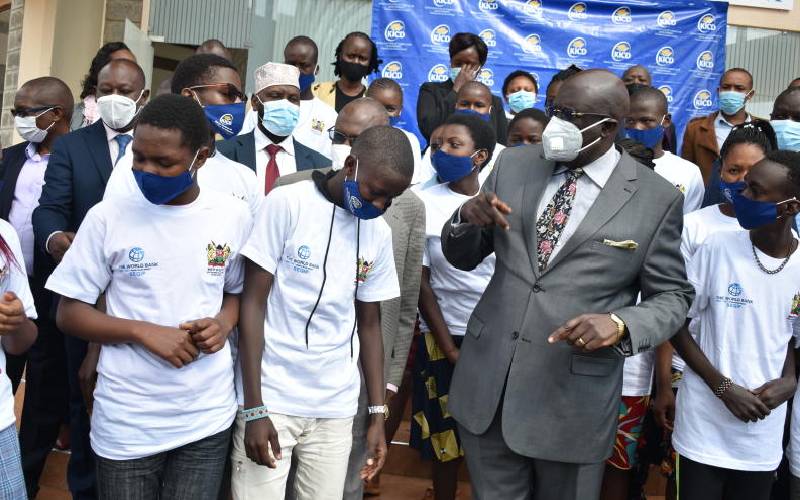×
The Standard e-Paper
Smart Minds Choose Us

Education Cabinet Secretary Prof George Magoha with the Beneficiaries of the 2020 KCPE Exams Scholarships awards at the Kenya Institute of Curriculum Development on July 22, 2022. [Samson Wire, Standard]
Candidates sitting national exams could pay higher fees as the Kenya National Examination Council (Knec) seeks Sh6 billion to plug its projected funding deficit.